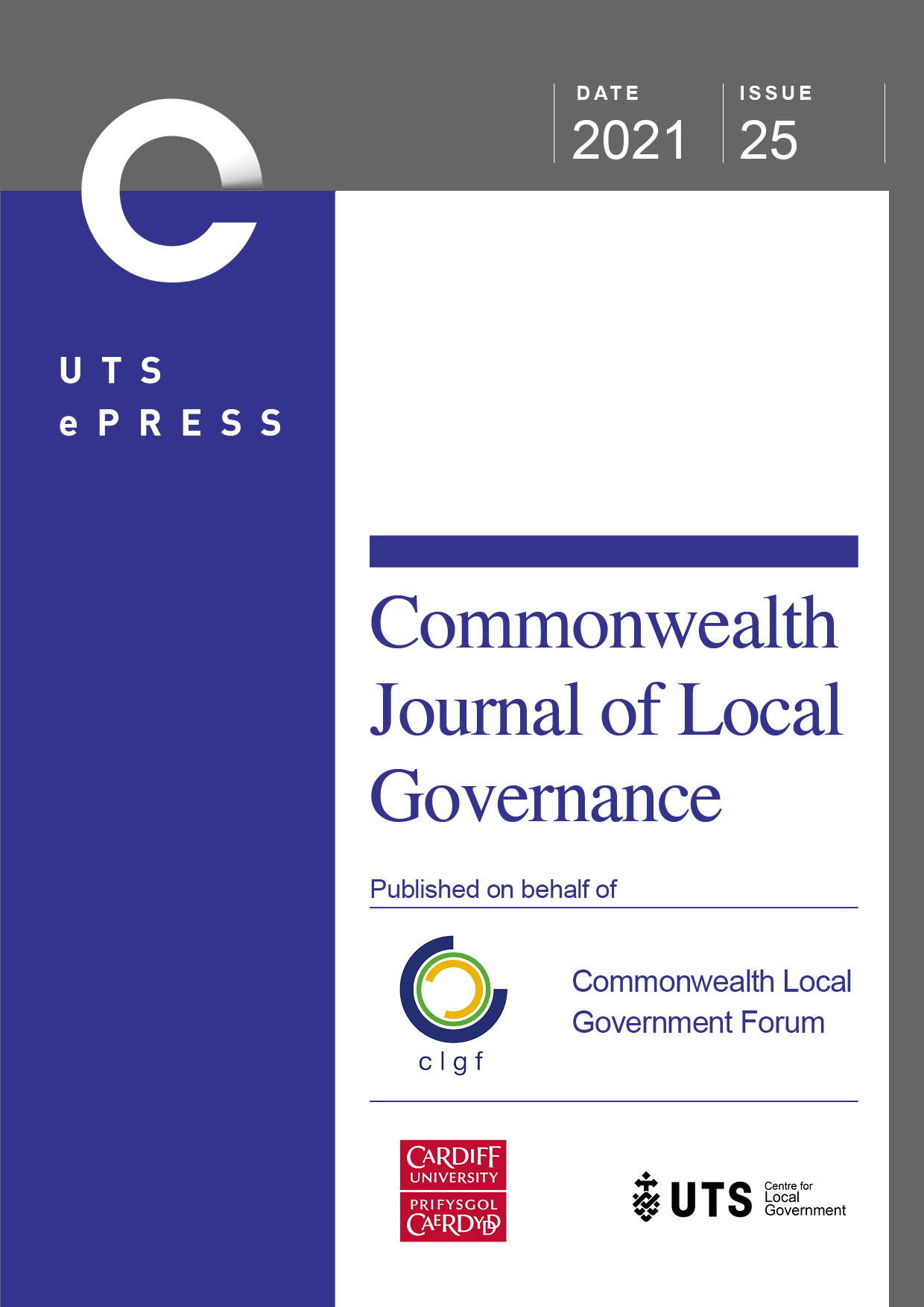Factors affecting the performance of South African municipal officials: stakeholders’ perspectives
Main Article Content
Abstract
Since the inception of the democratically elected post-apartheid government, South Africa has experienced growing numbers of protests about inadequate provision of basic municipal services. Recent studies have revealed that the poor performance of municipal officials contributes towards poor municipal service delivery. This article is based on a study which used qualitative key stakeholder interviews to analyse the performance of South African municipal officials, specifically in the delivery of services. It found that the following inter-related factors were responsible for the lack of performance: an unsupportive institutional environment, negative power struggles, over-regulation, political interference, a tense and bureaucratic environment, lack of coherent management systems, absence of a culture of excellence, poor skill utilisation, poor oversight mechanisms, weak capacity to engage in collaborations, and lack of trust between councillors from different political parties. The study concludes that for South African municipalities to meet their constitutional obligations to deliver optimal basic services to the people, the government must, inter alia, invest in building the capacity of municipal officials through the development of skills and other crucial local government interventions and transformations. The municipalities should also depoliticise local government and promote non-partisan appointment of municipal officials.
Article Details
Issue
Section
Authors who submit articles to this journal from 31st March 2014 for publication, agree to the following terms:
a) Authors retain copyright and grant the journal right of first publication with the work simultaneously licensed under a Creative Commons Attribution License that allows others to share and adapt the work with an acknowledgement of the work's authorship and initial publication in this journal.
b) Authors are able to enter into separate, additional contractual arrangements for the non-exclusive distribution of the journal's published version of the work (e.g., post it to an institutional repository or publish it in a book), with an acknowledgement of its initial publication in this journal.
c) Authors are permitted and encouraged to post their work online (e.g., in institutional repositories or on their website) prior to and during the submission process, as it can lead to productive exchanges, as well as earlier and greater citation of published work (See The Open Access Citation Advantage Service). Where authors include such a work in an institutional repository or on their website (ie. a copy of a work which has been published in a UTS ePRESS journal, or a pre-print or post-print version of that work), we request that they include a statement that acknowledges the UTS ePRESS publication including the name of the journal, the volume number and a web-link to the journal item.
d) Authors should be aware that the Creative Commons Attribution (CC-BY) License permits readers to share (copy and redistribute the work in any medium or format) and adapt (remix, transform, and build upon the work) for any purpose, even commercially, provided they also give appropriate credit to the work, provide a link to the license, and indicate if changes were made. They may do these things in any reasonable manner, but not in any way that suggests you or your publisher endorses their use.
For Issue 13/14, and all issues before, the following copyright applied:
Authors submitting a paper to UTS ePRESS publications agree to assign a limited license to UTS ePRESS if and when the manuscript is accepted for publication. This license allows UTS ePRESS to publish a manuscript in a given issue. Articles published by UTS ePRESS are protected by copyright which is retained by the authors who assert their moral rights. Authors control translation and reproduction rights to their works published by UTS ePRESS. UTS ePRESS publications are copyright and all rights are reserved worldwide. Downloads of specific portions of them are permitted for personal use only, not for commercial use or resale. Permissions to reprint or use any materials should be directed to UTS ePRESS via the journal's main editor, Alison Brown, journal@clgf.org.uk
